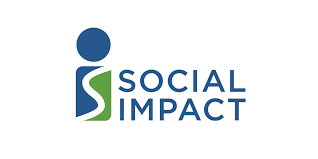Evaluation Principal Investigator
Lishe Endelevu Endline Evaluation,
USAID/Tanzania Monitoring, Evaluation, Learning, and Adaptation (T-MELA) Activity
Social Impact (SI) is a global development management consulting firm. We provide monitoring, evaluation, strategic planning, and capacity building services to advance development effectiveness. We work across all development sectors including democracy and governance, health and education, environment, and economic growth. Since 1997 we have worked in over 100 countries for clients such as US government agencies, bilateral donors, multilateral development banks, foundations, and nonprofits.
Project Description:
On January 19, 2023, USAID/Tanzania awarded International Business Initiatives (IBI) and SI a four-year contract for the Tanzania Monitoring, Evaluation, Learning and Adaptation (T-MELA) Activity. This activity is to assist the USAID/Tanzania Mission with strategy- and activity-level performance monitoring, evaluation, and learning. This activity will also provide data gathering and verification, data visualization (including Geographic Information Systems), data quality assessments, impact and performance evaluations, assessments, organizational learning, and collaboration among USAID’s implementing partners and DO teams. The MEL Support Platform will also implement a capacity building agenda for the mission, developing a baseline of M&E knowledge within the mission and tailoring a curriculum to provide skills development to mission staff.
USAID/Tanzania has commissioned SI to conduct an endline evaluation of the Lishe Endelevu (LE) Activity.
USAID Lishe Endelevu (Sustainable Nutrition) Activity is a $24.65 million USAID-funded Cooperative Agreement approaching its final year of implementation on October 2, 2023. The Activity goal is to improve nutrition outcomes for women of reproductive age, children under five, and adolescent girls, to meaningfully advance Tanzania along its journey to self-reliance. Specifically, the Activity meant to reduce stunting among children under five by 15%, increase by 15% children ages 6-23 months who receive a minimum acceptable diet (MAD), increase by 15% women of reproductive age consuming a diet of minimum diversity, and increase the prevalence of exclusive breastfeeding (EBF) of children under 6 months by 20%.
Purpose and use of Lishe Endelevu Endline:
The purpose of the endline study is to assess the extent to which USAID/Lishe Endelevu Activity has improved the nutritional status of children under five and women of reproductive age, including adolescent girls in the four regions of implementation. Through this study, the T-MELA will be able to collect point-estimate data to measure the outcome and impact/performance of the Activity. With this endline, USAID seeks to answer the following evaluation questions.
- How has USAID/Lishe Endelevu contributed to the improvement in the coordination of nutrition interventions at the region, council, and community levels? To what extent are the multisectoral structures and systems transformed to support the implementation of nutrition interventions in the four regions?
- To what extent has USAID/Lishe Endelevu Activity contributed to the improvement of the nutritional status of children under five and women of reproductive age, including adolescents in the four regions of implementation? How has USAID/Lishe Endelevu supported the achievement of these observed changes at the region, council, and community levels?
- To what extent has the Activity improved household production and consumption of nutrient-rich foods? What are the most significant challenges and/or opportunities in achieving the Activity results given climate change?
- To what extent have gender transformation interventions and SBCC approaches improved equitable control over household resources and income generation for dietary diversity?
This evaluation will inform USAID about the performance and impact of the investment channel through the Lishe Endelevu activity. Inform the future nutrition design and approaches. The study results also can inform the local government on the value of investing in nutrition to improve the nutrition status of vulnerable populations.
The primary audience of the study is USAID/EG office, PORALG, and 23 Councils from Morogoro, Dodoma, Iringa, and Rukwa. Furthermore, the report will be also useful to the PMO and the Ministry of Finance which allocates funds for nutrition in LGAs.
Position Description:
SI is seeking a Principal Investigator to support T-MELA with the Lishe Endelevu Endline evaluation.
The Principal Investigator shall be an English speaker evaluation expert with strong evaluation experience in the public health and nutrition sectors. She/he will lead the evaluation team through all stages of the evaluation, responsible for leading the team in generating all key deliverables including a Design Report, Draft Evaluation Report, Final Evaluation Report, and other key knowledge products. The Principal Investigator will conduct data collection in Tanzania along with a locally-based Co-Principal Investigator, Subject Matter experts and a data analyst. She/he will work under the guidance of the Senior Assessment and Evaluation Specialist in Tanzania and SI’s Project Director in Washington DC.
Responsibilities:
The Principal Investigator will:
- Line-manage the Evaluation Team collaboratively with the T-MELA’s Chief of Party and task 2 Team Lead.
- Lead desk review, initial stakeholder consultation, and identify additional information/analyses required.
- Lead the team to prepare and finalize evaluation design, methodologies, analysis strategies, work plan, and timelines to USAID and partners.
- Lead and oversee data collection efforts, consultation with implementing partners based upon research/logistical needs.
- Take responsibility for ongoing data analysis and iteratively develop findings, conclusions, and recommendations.
- Write the evaluation report in coordination with team members, taking into consideration feedback from a preliminary findings session
- Take the lead in preparation and presentation of the key findings, conclusions, and recommendations to USAID, key stakeholders, private sector, and research users following SI’s and USAID’s standards
- Take responsibility to lead the team to respond to USAID and USAID T-MELA’s comments and feedback and deliver high-quality deliverables that meet USAID and SI’s standards.
Deliverables:
With support from USAID/T-MELA and team members, the Principal Investigator will be expected to take overall responsibility for the production and management of the following:
- Final Evaluation Design: A detailed, full evaluation design and workplan following an initial consultation with USAID that will include chosen methodologies, and data collection tools.
- Kick off meeting/Inbrief: A PowerPoint/Google Slides presentation summarizing the Inception Report for USAID/T-MELA and key partners prior to the launch of data collection.
- Findings Conclusions and Recommendations (FCR) Matrix: An analysis tool through which data is triangulated and findings, conclusions, and recommendations specific to each research question are produced. Two FCR matrixes are expected, a preliminary document after the first full week of data collection, and a final matrix at the end of the data analysis period.
- Outbrief: The team will present the key findings, conclusions, and recommendations to the wider USAID/Tanzania Mission through a PowerPoint/google slides presentation. The TL is expected to update this PowerPoint after the final report.
- Draft Report: A draft report with fully developed findings, conclusions, and recommendations, no longer than 30 pages excluding annexes, will be submitted to the T-MELA COP who will submit to the USAID COR for T-MELA activity. The format will include an executive summary, table of contents, methodology, findings, and recommendations. USAID/T-MELA and key local stakeholders will provide comments on the draft report.
- Final Report: The team will submit a final report that incorporates responses to USAID’s/partner’s comments and suggestions. The report will be submitted electronically in English. The report will be disseminated within USAID and key stakeholders.
Qualifications and Skills:
The Principal Investigator must have/hold:
- At least 10 years of senior-level experience working on evaluation is desirable, with extensive experience evaluating nutrition interventions required.
- A postgraduate degree in public health, nutrition, or a suitably related field
- Extensive experience in leading research teams and preparing high-quality documents.
- Experience in design of instruments for data collection for nutrition survey questionnaires including anthropometric measurements, KIIs, Focus Groups using diverse technology.
- Excellent oral communication and written skills in English is must.
- Demonstrated experience in communicating with local stakeholders at managerial and technical level.
- Experience working with international donors, especially USAID.
- Preferably, the applicant will possess experience conducting research or evaluation in the education sector in East Africa, Tanzania in particular.
Level of Effort (LOE):
Expected up to 56 days. Only actual time spent is billable. Please see below table for a sample breakdown of suggested LOE by project task.
Desk review of documents and secondary data 5
Introductory meeting with USAID 1
Introductory meeting with Implementing Partner(s) 1
Draft evaluation design / work plan and data collection instruments; sampling framework 7
Presentation to USAID of the evaluation design and Work Plan (virtual or in-person) 1
Evaluation Team finalizing (following USAID feedback) and submits to USAID evaluation design / work plan, including design, methodology, and data collection tools; logistics 2
Data Collection (includes any data collection tool test). 18
Data analysis & coding, preliminary findings presentation preparation 6
Preliminary Findings Presentation to USAID 1
Preliminary Findings Presentation to IPs 1
Draft Evaluation Report (includes two rounds of USAID reviews) 10
Final Evaluation Report (including not more than a Two-page Briefer) following USAID feedback 3
Total Estimated LOE 56
Expected timeline: May – October 2023



